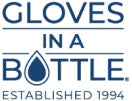
Simple Steps for Eczema Hands Relief
Share
At some point in time you probably have experienced itchy or dry, flaky skin - and probably like the rest of us, you are just suffering from some seasonal or lifestyle changes to your skin. Most of us will have dry skin from time to time due to excessive hand washing, or overuse of harsh cleaners; however, when the problem persists it may be an ongoing condition like eczema that needs professional attention.
Eczema on your hands or on most other parts of the body is not something serious; however, it can be quite irritating and can get in the way of your daily routine. Eczema is a condition that represents itself as inflammation that looks like flakey, peeling, red and excessively dry skin. The cause of eczema has not yet been discovered as it varies from person to person. Certain substances, and even some foods, or seasonal changes can bring upon the symptoms - almost like an allergy. If you have eczema or know someone with it, it is best to first deal with the symptoms before you get to the long-term treatment or prevention plan.
Firstly, someone with eczema needs to improve or fix the protective layer of their skin. This protective layer is the top layer, and the first step of defense that gets broken when eczema flares up.
So what are some tips to protect the skin?
- Try cotton gloves for eczema hands
Not your usual itchy pair of winter gloves - quite the opposite. A pair of cotton gloves is like a soothing protective cover that keeps your hands safe. Cotton is a breathable and non-allergenic fabric that is perfect for eczema. It will give your hands the break they need to heal - and also create a barrier to stop unavoidable itching.
- Apply a shielding Lotion
A shielding lotion works similarly to real gloves but without the fuss of actually wearing them. This lightweight lotion applies directly onto your skin and absorbs instantly, creating an invisible matrix that keeps irritants out, and keeps moisture in.
“My mom‘s hands have always been ridiculously dry and scratchy. Sometimes the skin around her thumb nails even cracks in the winter. Especially because of the extra hand washing because of the coronavirus, I got this for her to see if it made a difference. She’s been using it morning and night, and within a week her hands were soft for the first time ever that I can remember!! She is so happy because she’s been sewing a lot of face masks, and now her fingers don’t stick to the fabric. I’M happy because I know it decreases the risk of her getting coronavirus through any open cuts or cracks on her hands!! I bought six more bottles for the rest of my family and recommended it to all my friends. And now I highly recommend it to you!”
- Use milder soaps and creams
If we want to start getting to the source of the problem, we need to eliminate or replace products that are being applied to our skin. Most hand soaps have antibacterial properties which will cause your skin to dry. If you have sensitive skin, fragrances and dyes should be avoided. It is always best to use a soap that is 100% natural.
- Shower in cooler water
Hot temperatures can seriously damage the surface of the skin and should be avoided. Cooler weather is not only better for your skin but a cold shower can help reduce any inflammation or soreness caused by the eczema.
For more information on how a shielding lotion works, please read what the experts have to say.
